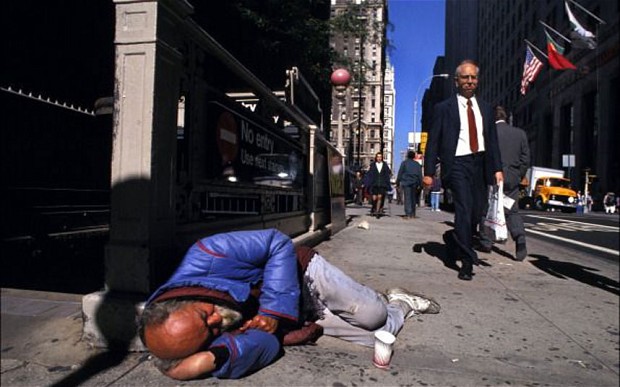In 1940, American biologists Raymond Pearl and L.J. Reed set out to predict the future growth of the U.S. population based on a logistic growth curve, which had been successful when applied to the study of certain populations of the animal kingdom and brewer’s yeast. They missed the mark. Far from the gradual slowdown forecast by the curve, the growth rate in fact accelerated: After the abstinence imposed by World War II, birth rates saw the major spike that would become known as the baby boom.
Later, in 1968, the entomologist Paul Ehrlich, a noted expert on butterflies, announced an increase in the world population that would have been made our little planet uninhabitable by now. His book, The Population Bomb, was one of the driving forces behind the wave of pessimism that gripped the Western world in the second half of the 1970s. But Ehrlich also missed the mark: population growth is slowing, and today’s demographers seem to agree that the world population will stabilize at approximately eight or nine billion inhabitants around the middle of this century. Some will be around to see if they are right this time.
These miscalculations demonstrate that the human species has an apparently unlimited ability to adapt to circumstances, and never fails to surprise those who study it. If we are surprised when attempting to estimate the size of a population, what will happen when we try to determine the laws that determine the evolution of inequality ? We will have to be modest, come what may.

Universal Harmony
Given the persistence of vast inequalities between rich and poor countries, we can find comfort in the idea that the per capita income of the world’s poorest will slowly close the gap on the rich, and that reaching universal harmony is only a matter of time. That is wishful thinking, however, because the convergence of living standards is seen in a relatively small number of countries — albeit some, such as China, are very large — and mobility, according to Milanovic, is more often descending than ascending. Since convergence depends largely on good governance in each country, we cannot take it for granted. And if that were the reality, where would we end up: like Luxembourg or Zimbabwe?
Recent history teaches us that convergence has gone in an upward direction: many of us have approached the level of the United States, not vice versa, thus forming the club of the rich; but that is only 15% of the world’s population, with a per capita income exponentially higher than that of the remaining 85%. Therefore it is conceivable that the planet cannot accommodate the gigantic increase in production that would enable the upward convergence of the vast majority of the population; and hence it is also conceivable that we are halfway between Norway and Vietnam. It would come as no surprise if the countries in the upper echelon were to do whatever it takes to prevent this convergence. So let’s not consider it a done deal.

In the best case scenario, the convergence of average income levels between countries will not translate into a lower inequality among its inhabitants. One need look no further than China, where the average income has risen while inequality has also increased. What might happen in a Western country? What little we know is not particularly encouraging: inequality appears to be on the rise; largely unknown forces — globalization, the expansion of trade to services, technical progress — combine to result in growths in production without increases in employment, labor market polarization, decrease in the portion of income that goes to wages, once again increasing concentration of wealth… but let’s not fall into the trap of predicting the future, like the biologists mentioned before. It is better to take some lessons from the past and present.
Some of the dramas of the past century hinted at the resolution of an unjust situation, as in the First World War, which destroyed the empire of capital in the opposing countries; or the presence of a distribution conflict, as in the oil crisis, which put an end to three decades of sustained growth in the West. Both examples show that an unjust solution will not last forever and that if it lingers too long, it will end badly.
We cannot rely on a market economy driven purely by individual interest to remedy an unjust situation, because we may be able to demand efficiency from that economy or the market, but not justice . For decades we were somehow able to believe that growth could mask the issue of inequality. Today it is more prudent to think otherwise. It is a good time to draw on our tremendous ability to adapt; without giving up the pursuit of individual interest, which has led us so far, let’s put that interest in its place and make way for other needs and desires, other virtues that combine to give rise to a more livable world. Let’s surprise the pessimists once again!
Originally published in La Vanguardia on July 13, 2013

Alfredo Pastor, PhD in Economics from the Massachusetts Institute of Technology (1973), is a professor in the Department of Economics and the holder of IESE’s Banco Sabadell Chair of Emerging Markets. He was Spain’s Secretary of State for Economics (1993-1995), and a Country Economist at the World Bank (1980-1981), among other positions. He was the Dean of China Europe Business School (CEIBS) from 2001 to 2004. In his career, Alfredo Pastor received the Grand Cross of the Order of Civil Merit in 2004 for his work at CEIBS, and the Godó Award in Journalism in 2011.



“We cannot rely on a market economy driven purely by individual interest to remedy an unjust situation” Well, first of all you need to define “unjust”. If a market economy was the only economy that was viable long-term (and socialist planning certainly has not proven itself to be superior) AND it has results such as inequality – how can that then be unjust? And even if we could reach a society-wide consensus that it was unjust – would that mean we should tamper with the markets? Like “I find it unjust that lead is so heavy – let’s get less into these protection aprons that guard against X-rays!” I think this kind of reasoning may have created more inequalities than if governments had left markets untouched, or, perish the thought, even helped them function!
A) I didn¹t think one needs to define Œunjust¹ too closely to agree that
the variety of market economy, which one may describe as capitalist, has
generated a lot of injustice. B)Our variety of market economy is not the
only possible one,and others (with no more government interference might
be recognized as less unjust; C) Every student knows that efficiency is a
property of a well-functioning market economy, but justice, or fairness,,
is not, and this a prima facie reason to want to correct it. Not
necessarily through more Government intervention, or any kind or
intervention.